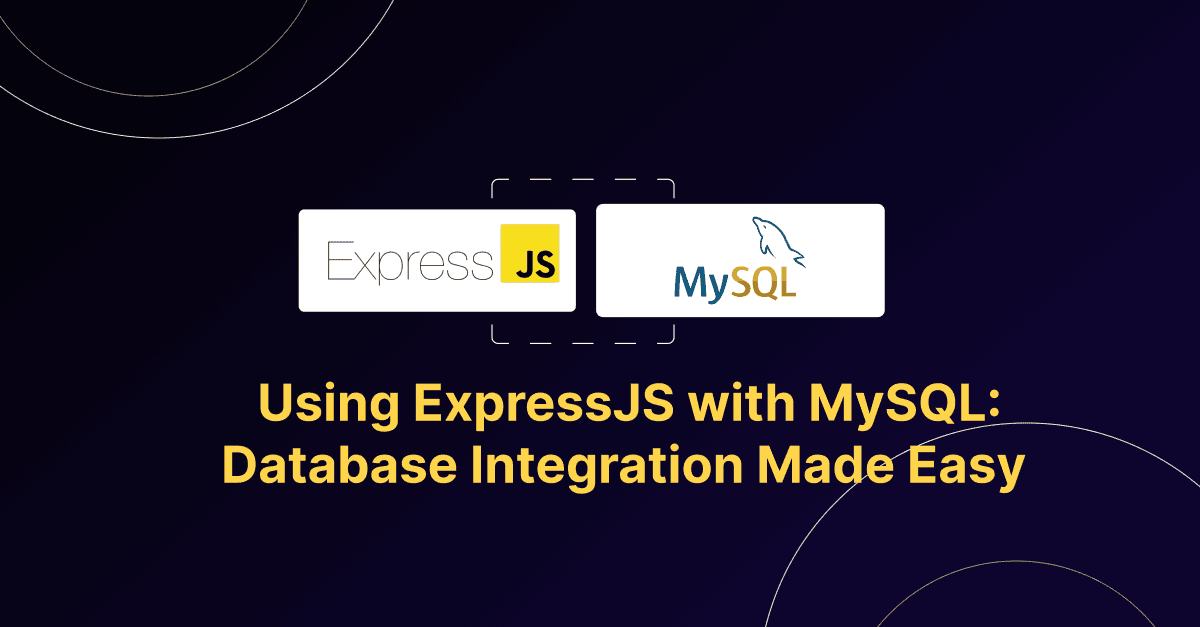

Loading

Loading

Using ExpressJS with MySQL: Database Integration Made Easy
In the realm of web application development, databases play a pivotal role in storing and managing data. ExpressJS, a powerful Node.js framework, seamlessly integrates with various databases to provide efficient data management capabilities. One such database option is MySQL, a popular relational database management system. In this blog, we'll delve into the world of using ExpressJS with MySQL, exploring how this integration simplifies database operations, enhances data handling, and accelerates the development of robust and scalable applications. By understanding the synergy between ExpressJS and MySQL, you can create applications that handle data seamlessly and provide enhanced user experiences. Additionally, we'll introduce you to our Hire ExpressJS Developer Services, which can help you harness the potential of ExpressJS and MySQL for your projects.

The combination of ExpressJS and MySQL offers several advantages for web application development:

1.Setting Up Your Project:
2.Configuring MySQL Connection:
3. Defining Models and Schema:

4.CRUD Operations:
5.Error Handling and Validation:
6.Middleware Integration:

While integrating ExpressJS with MySQL is a powerful approach, optimizing database interactions and ensuring best practices often requires expertise. Our Hire ExpressJS Developer Services offer valuable support:
Conclusion:
Integrating ExpressJS with MySQL opens the door to a world of possibilities in web application development. By understanding the nuances of this integration, you can create applications that manage data efficiently, provide seamless user experiences, and scale gracefully. As you embark on this journey of using ExpressJS with MySQL, consider CloudActive Labs as your partner. Our Hire ExpressJS Developer Services provide the expertise needed to elevate your database integration, ensuring your applications are built with precision, scalability, and optimal performance in mind. Reach out to CloudActive Labs today and unlock the full potential of using ExpressJS with MySQL for your business.









Have questions or need assistance? We're here to help! Reach out to us today, and our team will get back to you as soon as possible.